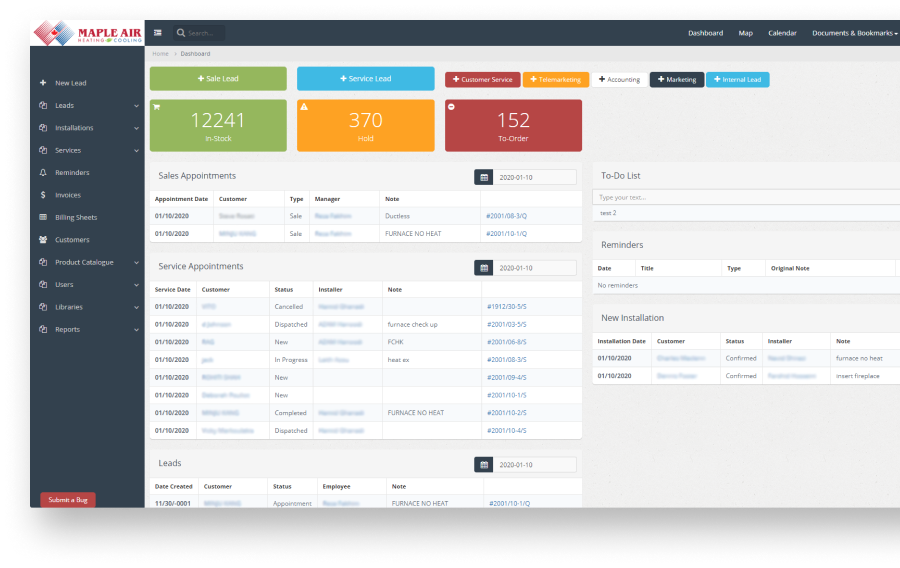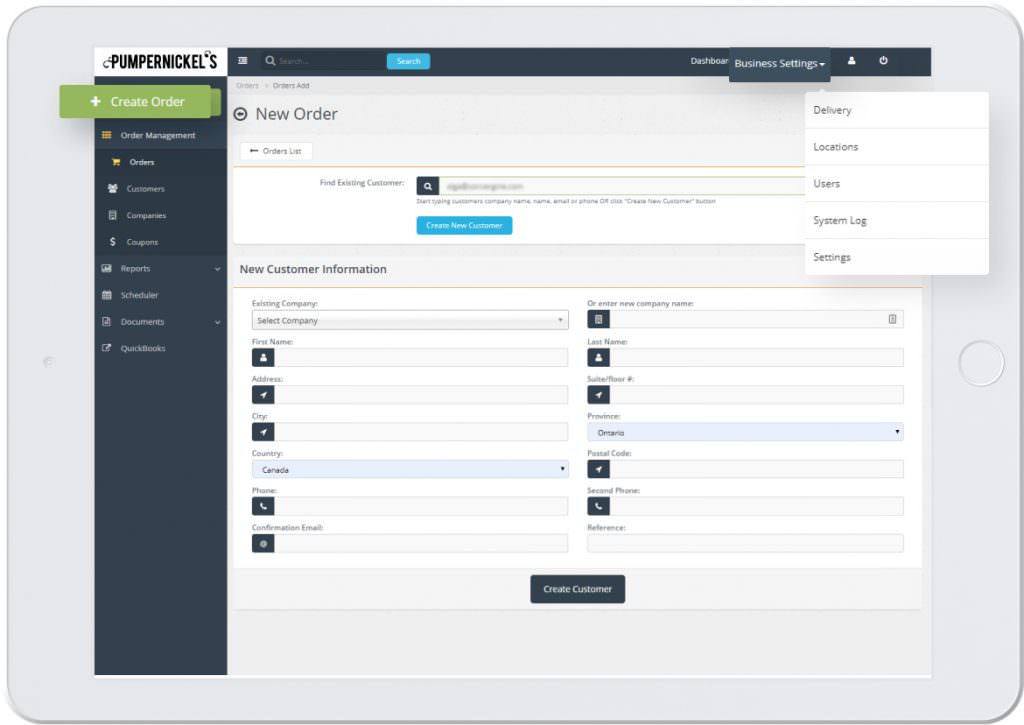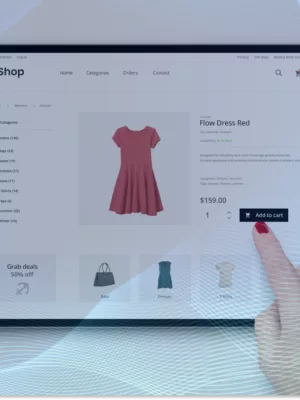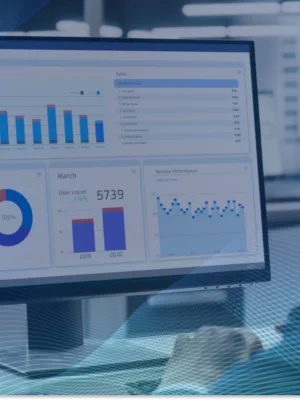
Whether you use an enterprise CRM or have one custom-made for your business, you want it to help your business make a profit. CRM software can take different forms, of course, and require different features depending on what your company needs. However, there are certain technologies you should definitely be taking advantage of if you want to get the most from your CRM. Today, we’re going to explore the latest technology trends in CRM software development and what kinds of rewards you can expect to reap from them.
5 Technology trends in CRM software development
One of the amazing things about customer relationship management (CRM) software is that it can do so many things.
For instance, you have operational CRMs that allow teams to automate sales and marketing workflows — both internally as well as customer-facing. These tools help businesses connect with the right prospects and turn them into customers more efficiently.
There are analytical CRMs that process large quantities of customer data. In turn, businesses may use those insights to create more efficient workflows, enhance their products or services, and project future revenue.
Then, there are collaborative CRMs. These kinds of tools capture details about customers and their interactions with a business. This enables companies to more effectively sell to customers while also building stronger relationships with them.
Needless to say, CRMs are indispensable assets for businesses. And the sooner you start using the following CRM technology trends, the more you’re going to get out of your software.
1. Third-party integrations
At its core, a CRM needs to be a reliable piece of software that helps you run your business and handle your customer relationships more effectively. That said, managing customer data and related processes is just one piece of your operation.
Take an e-commerce business, for example. Wouldn’t it be useful if your CRM could not only capture data about who your customers are, but merge that data with information on what they buy, how frequently they shop, and other spending habits? For this, you’d need your CRM to talk to your payment processor.
Or what about a service-based business like an HVAC company? They have special requirements, specific workflows, or need to create something that “talks” to our other business software. Sometimes their CRM would be less about processing customer data and more about managing the internal functions that affect the customers themselves. In many of those scenarios, a custom HVAC CRM would be the best solution to grow and control the business.
Convergine created a custom solution for Maple Air, a family-owned business needing help managing its growth.

In addition to designing an advanced and automated system for the HVAC provider, Convergine also built an integration for Google Maps into the software. Because MapleAir schedules customer appointments over a vast area, being able to quickly pull geolocation data from Google was critical to enhancing efficiency.
Third-party integrations don’t just stop with popular tools like Google or payment processing software though.
APIs allow us to integrate commonly used business apps with CRMs. For some businesses, connecting to marketing platforms like HubSpot or accounting tools like QuickBooks is a no-brainer. For more niche businesses like car rental companies, for example, it might be beneficial to connect a CRM to a car license number decoder.
APIs keep your clients from having to manually pull data out of one platform and insert it into another. They also allow them to gain deeper insights into company operations and trends as they can see the whole picture at once.
2. Conversational interfaces
This isn’t a new technology trend by any means, but conversational interfaces are becoming more popular in CRMs due to how much demand there is for real-time support.
For starters, whether you’re building a custom CRM or adapting an enterprise solution to your organization, there’s always going to be someone who gets lost, doesn’t know how to do something, or wants more information on a particular section of the software. It’s inevitable.
But the whole point in building a CRM is to streamline your operations; not add more work.
With a chatbot in place to field common questions and direct users to what they need, this reduces the pressure on your live team to support yet another business tool. And those are just what simple chatbot solutions do.
With the help of artificial intelligence and natural language processing, chatbot technology is better than ever. The more your chatbot engages with your users, the more it learns how to respond in a natural-sounding way while effectively getting to the root of their problem.
Take, for instance, a loan management CRM. Salespeople could use the chatbot for quick questions related to lead scoring, estimated income for the quarter, and more. The chatbot, in turn, could anticipate these commonly asked questions and proactively ping users with answers when they need them.
3. Artificial intelligence
Chatbots are just one of the CRM technologies that can be powered by artificial intelligence (AI). There are tons of other reasons and applications for AI to play a role in your business software.
For example, in the finance industry, AI would be useful for analyzing data from all over — from internal customer reports to external market insights — and predicting what’s to come. This would enable companies to be proactive and to make data-backed decisions that both help them and their customers.
For software companies, machine processing would allow sales teams to more quickly and accurately identify, qualify, and onboard leads. Not only that, but most of these tasks can be automated with AI, too, which means less work for you as the machines handle the heavy lifting.
Service providers would do well to use AI to manage the backend of the customer experience. As we’ve already mentioned, AI-powered customer service chatbots would be extremely valuable. But AI can also be used to predict ebbs and flows in work, so companies could better manage things like staff levels, inventory controls, and marketing spend throughout the year.
Needless to say, AI is a versatile tool and can be used in so many ways. Even if you’re on the fence about some of the other technology trends on the list, this is one you can’t afford to pass on.
4. Omnichannel service
You already know that you can use third-party integrations to make your CRM talk to other software. But that’s not the only way technologies can centralize and simplify your operations.
Think about multi-location restaurants or hotels, for example. Customer service is an incredibly important component for hospitality businesses and, yet, the Internet has only made it more complicated to get a handle on it.
For starters, there are so many channels customers can now contact a business through:
- Website
- Phone
- Social media (usually multiple pages, too)
- Online review services
- Support portals
- Walk-ins
How is a company to keep tabs on all of the information coming in from these channels, especially when there are numerous locations to manage? Businesses need to be able to speedily, professionally, and consistently deal with customer messages, feedback, and orders.
An omnichannel CRM that brings all channels, locations, and teams into one software is the only way to effectively do this.
This was something we built into the custom CRM platform for Pumpernickel’s, a multi-location catering company in Toronto.

By designing a solution that centralized all customer data and company operations, Pumpernickel’s could more effectively manage orders flowing through all channels.
5. Custom CRM development
When it comes time to find a CRM for your business, the process can be stressful. You might find one or two CRMs that seem to work okay enough, but they’re still not 100% suited to your unique business’s needs.
This is something we hear a lot from our customers.
Rather than try to mold an existing enterprise software solution to one’s business, we’re seeing more and more companies develop their own custom CRM solutions.
It makes sense when you think about it. The whole point in bringing a CRM into your organization is so you can work more effectively and efficiently for the sake of your customers as well as for your profit margins. But if you’re using a CRM that wasn’t built for your business or industry, you might end up:
- Getting incomplete, inaccurate, or useless data.
- Doing more work in the end to manage data and customer relationships.
- Losing time, resources, and opportunities.
In a few weeks, we’ll be publishing a post here that explains why custom CRM software development is so beneficial, so stay tuned for that. In the meantime, if you have questions about any of the technology trends mentioned above or want to talk to Convergine about how we can build a custom CRM for your business, get in touch.










